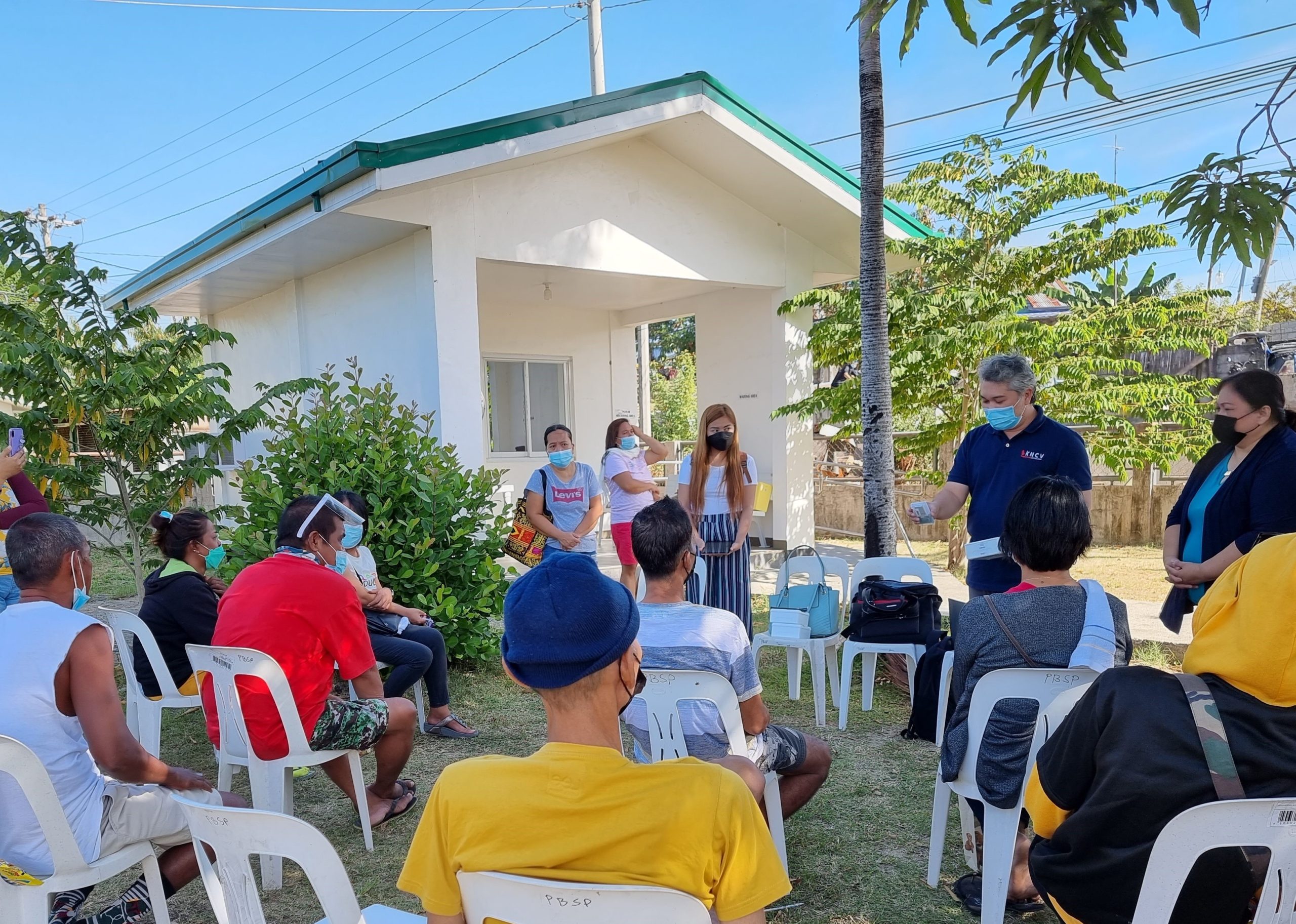ASCENT Philippines gathered drug-resistant tuberculosis (DRTB) patients to guide them in their use of digital adherence technology (DAT), in particular video-supported treatment (VOT) using the SureAdhere app and the evriMED smart pillbox. To comply with the COVID-19 social distancing rules and taking into account the importance of good ventilation, the meetings were held outdoors.
The series of face-to-face orientation reached nearly 70 DRTB patients from six PMDT facilities in Bulacan and Pampanga provinces in the Philippines. These included SureAdhere users and those who have switched to using the evriMED smart pillbox.
Video-supported treatment using SureAdhere
DRTB patients using SureAdhere articulated during field visits that they had difficulties with recording and sending videos of their medication intake. Given the large quantity of anti-tuberculosis drugs they have to take each day and the limited time they thought they had within which they can record the video, the patients tended to send incomplete recordings of their medication intake. This made it difficult for the nurse to ascertain that the patient had taken the full dose for the day.
To address this, Angelito Santiago, Digital Health Technical Officer, and Mona Lisa Morales, Regional Technical Officer, advised the patients and guided them step by step on how to record the videos and send them in several batches. Additionally, the project staff reiterated the importance of recording and sending the video of their medication intake using the SureAdhere app to ensure that the patients’ adherence to medication intake is recorded in the adherence platform.
EvriMED smart pillbox
The ASCENT Philippines team explained to patients who had switched to using the pillbox how to correctly use the technology, including what each LED light signified and locating a place in the house where there is a good signal to transmit the information that the box was opened. To ensure that patients understood how best to use the smart pillbox, ASCENT also gave family members, such as the patient’s wife, who came to the clinic for medication refill an orientation on the DAT. That way family members can support the patients in their daily use of the pillbox and therefore their recovery.

DRTB patients who were oriented on SureAdhere and guided on the use of the smart pillbox have said that they now feel more confident and comfortable using their DAT. In the second quarter of 2022, ASCENT Philippines will assess whether this articulated satisfaction has translated to improved treatment adherence.
Interim results
The treatment adherence rate using DATs was highest in the final quarter of 2021, specifically among DRTB patients. It was 13 and 14 percentage points higher than in the third quarter among smart pillbox users and VOT users, respectively. These results were reached despite the challenges that came with the COVID-19 pandemic.
The Unitaid-funded and supported ASCENT project is led by KNCV Tuberculosis Foundation in partnership with The Aurum Institute, London School of Hygiene & Tropical Medicine, and PATH.
